Therapies for children
Intensive Training, complementary therapies, complex 2-5 hour daily programmes
The basic therapy of our institution is Intensive Training, which children can attend for 1 or 2 hours a day. This is combined with complementary therapies to build up an individualised Complex Programme. Intensive Training and Complex Therapy help to overcome developmental stagnation or trauma in cases of neurological defects. The 2-5 hour a day programme is delivered by physiotherapists, conductive therapists, special educational teachers, developmental teachers and manual therapists. It involves specialised equipment such as therapeutic clothing and dynamic orthoses, suspension grids, spiders, conductive and sensory devices. In addition to movement training and pedagogical methods to promote motivation and independence, the complex programme also uses manual techniques, occupational therapy and other methods such as electrotherapy, sensory integration, speech stimulation and vision training.
Our therapists work as a team with complementary therapies combined with Intensive Training to provide complex development accelerating the stages of development.
Complementary Focus Intensive Therapy
Some children's motor development progresses at such a pace that it is worth focusing on
the development of sub-skills during therapy.
There are also children whose motor development is not progressing at the right pace due
to cognitive development delays, sensory problems and/or partial skills stunting.
In many cases, tension or muscle tone distribution disorder hinder the development of
movement.
If we intensively develop sub-skills, manipulation and fine motor skills, work on reducing
and eliminating the hindering factors, the development of movement can also move to a
new, higher level.
Supplementary Focus Intensive Therapy is also available at Borsóház.
In this case, the parent can choose several complementary therapies in addition to 1 hour
of physiotherapy in the 4-hour COMPLEX programme.
Conductive sessions can be up to 2 hours each day and the programme can be completed
with manual therapy, physiotherapy, occupational therapy, sensory integration and
intensive developmental pedagogical sessions.
This type of intensive week can be chosen according to the needs of the parent and the
recommendations of the professionals.

Intensive training
Intensive Training is a complex concept based on musculoskeletal and neuromotor rehabilitation, consisting of one or two hours of therapy per day, tailored to individual needs. The treatment always starts with setting of therapeutic goals which are defined by the professional team of Borsóház together with the family concerned during the first suitable consultation.
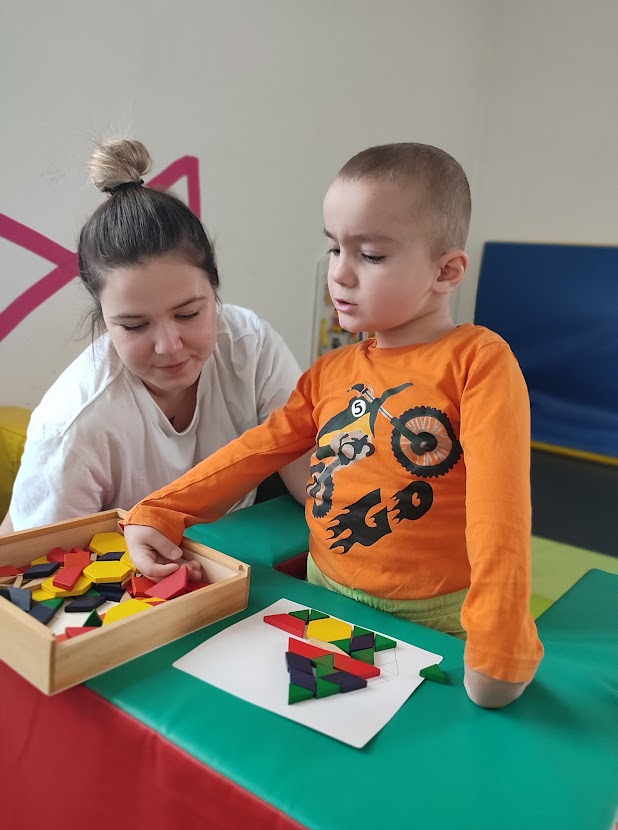
Manual therapy
The aim of Manual Therapy is to improve fine motor and arm function, to develop or restore physiological functions of the arms and hands, to increase reduced range of motion, to relax stiff, tight muscles, to reduce abnormal hand posture, to develop precise hand and finger movements, and to teach activities that will help the patient to become more independent and autonomous in their daily life. It is important that arms and hands play an essential role in everyday self-care. In case of severely and multiply disabled patients, besides neurological or other diseases, it is most often the weakened arm and hand muscles resulting in deformities and functional impairments, that prevents the patient from coping with everyday life situations. The therapy addresses dysfunctions from the shoulder girdle to the fingertips. Important elements include strengthening the muscles of the arm and hand, treating and correcting deformities and joint contractures and correcting abnormal postures and movements.
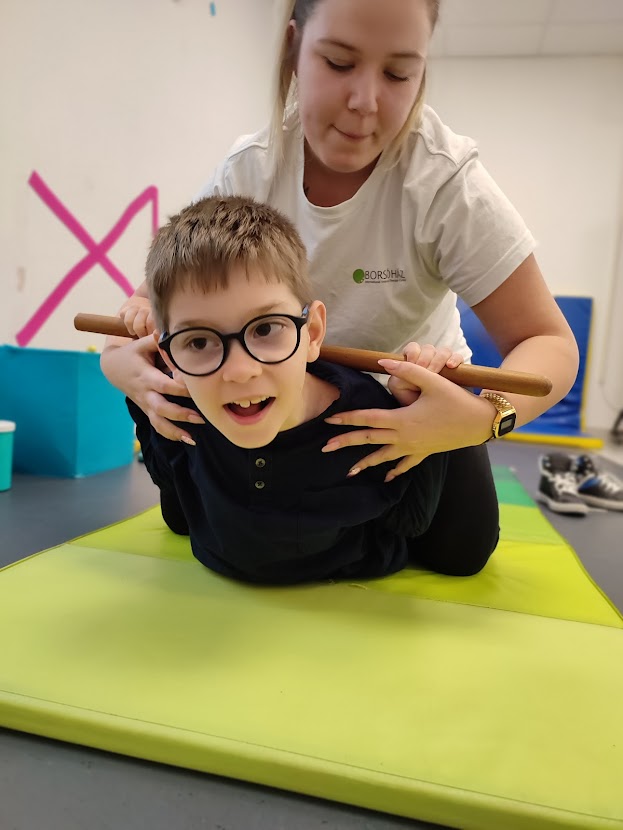
Conductive plus
Conductive education is a complex therapeutic method that simultaneously strengthens the child's motor, communication and cognitive skills. It helps to develop his/her emotional, social and autonomous skills. The stimulation of intrinsic motivation, the use of the right rhythm in solving balance-specific tasks help the learning process of the damaged nervous system and its rebuilding. As a complement to the Intensive Training, we propose Conductive Plus, so that children can deepen, become aware of and apply the information they have received during the Intensive Therapy through the Conductive Pedagogy method.

Sensorless integration
Sensory Integration targets the maturation of the nervous system, resulting in the development of movement, balance, concentration and many other areas. Its aim is to restore the natural responses of the nervous system in the event of sensory integration dysfunction. The main areas that the therapist works with are balance, touch and depth perception. The therapy improves spatial orientation, attention and concentration, post- sensory understanding and balance. It also affects motor efficiency and fine motor skills, improves limb alignment, settles symmetrical and asymmetrical movements, affects personality, and leads to improved self-awareness, self-esteem and behaviour. Sensory abilities ensure the unity of perception and movement. Its domains are: taste, smell, sight, hearing, tactile perception: touch, sense of feeling, dexterity, vestibular system: balance, attention, spatial orientation, sense of safety, proprioceptive system: body awareness, spatial orientation, laterality, tone, posture, use of force.
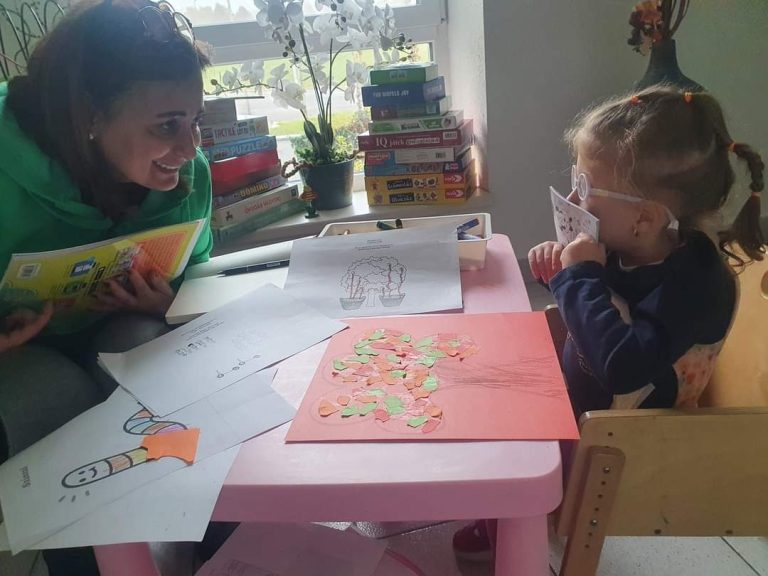
Cognitive development
In the Complex Therapy Programme, a special education teacher and a developmental teacher colleague work with the children to maximise their development. The task of the special needs teacher is to develop children with disabilities, handicaps and special educational needs to the limits of their abilities, using procedures adapted to their needs. Somatopedagogy is concerned with the improvement of altered postural and locomotor functions, functional systems and motor skill changes. Somatopedagogy is a branch of special education and constitutes a separate injury-specific pedagogical system. It is a part of remedial education rehabilitation, a complex special educational activity aimed at the personal development of a disabled person.
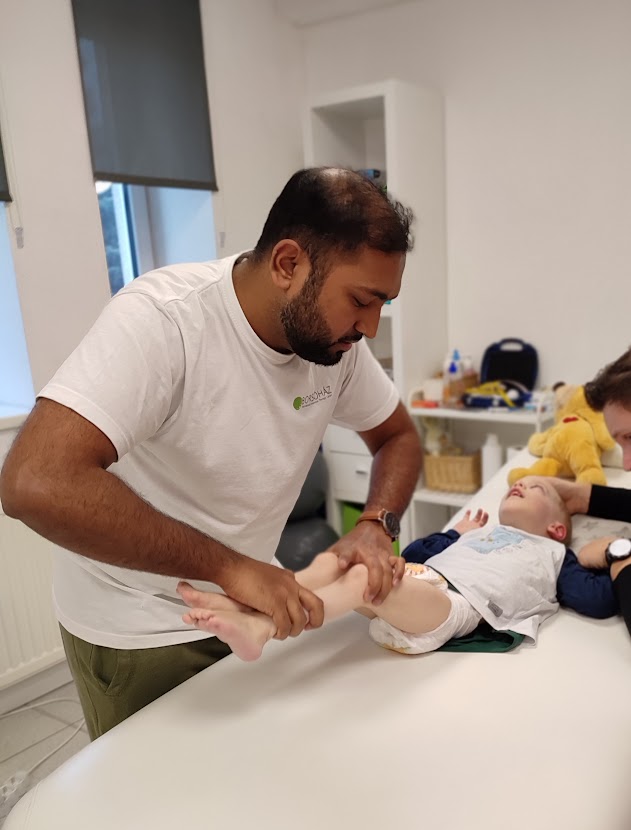
Manual therapy
In the Borsóház we also use various manual therapies in addition to Intensive Training as part of the Complex Therapy Programme as a complementary and supportive method. The aim is to treat neuromuscular tone, enhance proprioceptive facilitation, improve mobility and stability of soft tissues and joints. These manual therapies can be implemented between two intensive cycles in order to maintain the results obtained during the Intensive Training and to prevent secondary lesions of the musculoskeletal system. Manual therapy is a special form of physiotherapy which is performed manually by the therapist. It involves the mobilisation or manipulation of soft tissues and joints by the manual therapist to treat pain and damage to the musculoskeletal system. It is suitable for children and adults, regardless of age.

Occupational therapy is a distinct branch of rehabilitation therapy that helps to improve hand function and adapt to changes in lifestyle. It ranges from the selection of assistive devices, through training in their usage, to adaptation to the living environment. As a member of the rehabilitation team, the therapist is involved in work rehabilitation and leisure activities. The aim is to reintegrate the individual into society and to achieve the highest possible level of self-empowerment in relation to the changed living conditions. The main aim of ergotherapy is to achieve the greatest possible independence by teaching or re-learning everyday tasks. These include dressing, using the bathroom, eating and other simple or seemingly simple activities. It is important to assess the patient's individual abilities, needs and potential and to adapt to them. Occupational therapy places great emphasis on the development of manual dexterity and fine motor skills. During occupational therapy, it is important to teach the use of various assistive devices, such as wheelchairs, orthoses or prostheses and walkers.
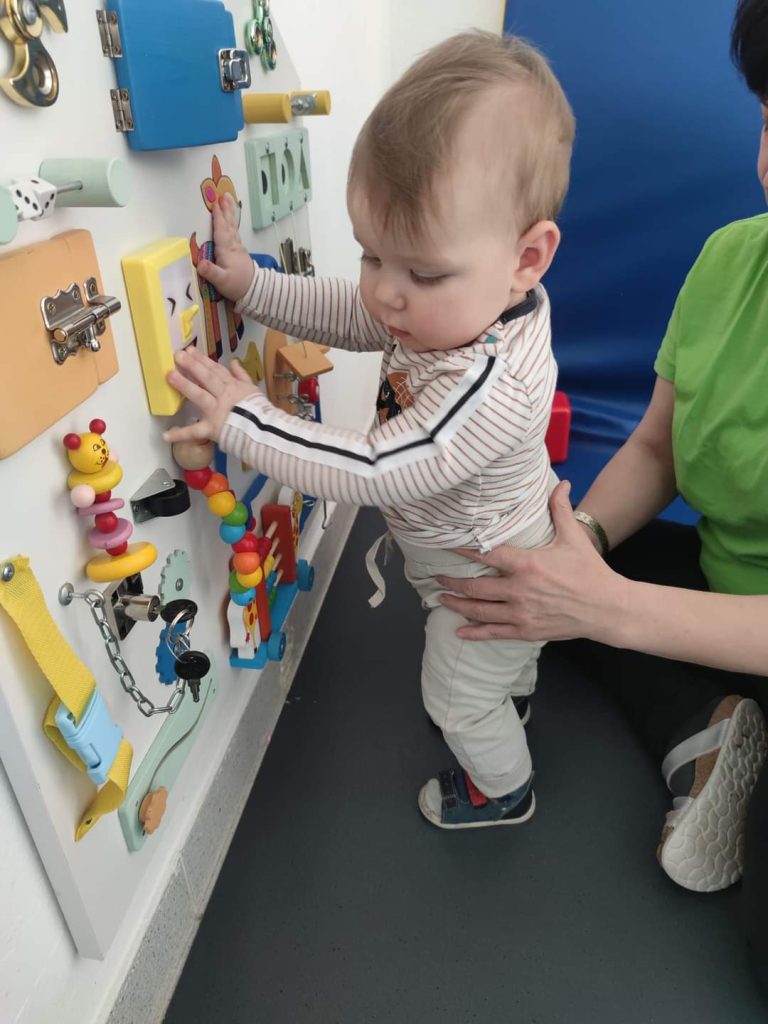
Early screening
If your baby is premature or has a birth injury, repairing the nervous system as early as
possible is the most important thing. In infancy, up to the age of one year, it is still possible
to correct the nerve pathways necessary for the proper functioning and development of the
nervous system. Due to the complexity of the therapy it may have limited effectiveness.
However, it is important to note that early and regular therapy increases the chances of a
healthy life like that of a healthy peer. It is therefore important that the first screening is as
close as possible to the birth of the baby. Babies whose developmental differences are
becoming more noticeable, for example where age-appropriate movement and other
developmental milestones are not evident month by month, a very valuable period of time
can be lost.
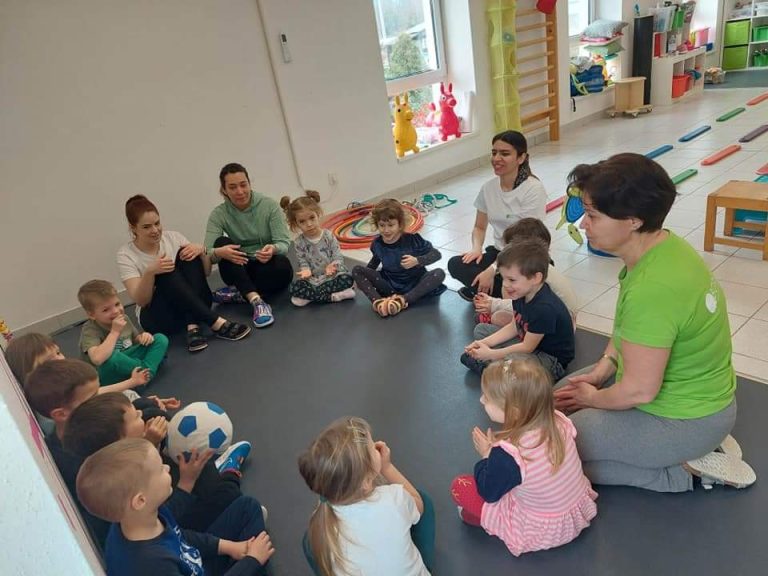
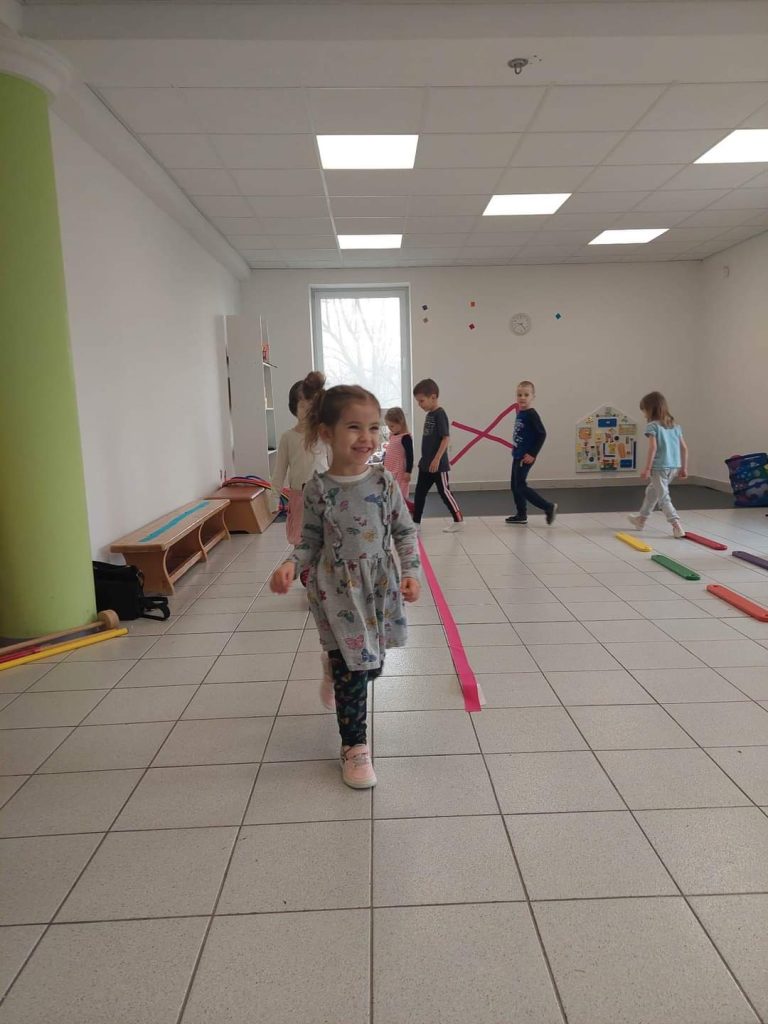
Group sensory gymnastics
Group gymnastics for children aged 3-8 years.
The advantages of a group tournament:
- Improves muscle strength, coordination, posture, balance and spatial orientation.
- Good for the sense of rhythm
- Increases self-confidence
- The remaining reflexes are integrated
- Learning skills improve, behaviour changes for the better.
- Integration problems are reduced.
- Speech differences are eliminated.
- Sensory sensitivity is improved.
- It helps to develop potty training.
- Body dominance and surety are established.
- Adaptivity is improved.


